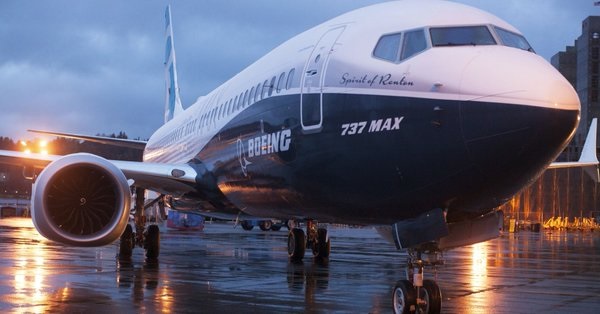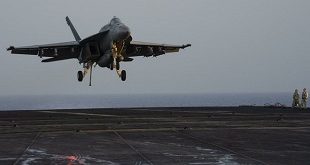
New York, United States | AFP | The pressure was mounting Monday on Boeing as newly-surfaced documents deepened doubts about the company’s ability to return a top-selling jet to service soon and amplified calls for a leadership shakeup.
Shares tumbled for a second day in a row after the Federal Aviation Administration on Friday sharply criticized Boeing for withholding key documents for months in probes following two crashes that killed 346 people.
The FAA rebuke added to the travails facing Boeing seven months after its top-selling jet was grounded, prompting Wall Street analysts to downgrade the company and raising speculation that it could be forced to temporarily halt production entirely on the jet.
Boeing’s board of directors was set to conclude a two-day meeting later Monday ahead of the company’s earnings release later this week and a congressional hearing at the end of the month.
Earlier this month, Boeing stripped Chief Executive Dennis Muilenburg of his title as chairman, sparking speculation that he could soon be ousted from the company.
The newly-released documents raise questions about what Boeing knew about a key flight handling system implicated in crashes of Lion Air and Ethiopian Airlines flights and whether the company has been forthcoming with regulators.
UBS downgraded Boeing, slashing its target price by $95 to $375 per share, citing “potential slippage” in the 737 MAX schedule, which has been grounded since mid-March. The matter also “heightens the potential of incomplete disclosure, which inherently puts more money/trust & time at stake.”
Another delay could “very well mean” a production pause on the 737 MAX, UBS said.
Boeing has previously described a production pause — which could potentially affect staffing and suppliers — as possible but not a likely course of action.
Shares of Boeing finished at $331.06, down 3.8 percent, extending losses from Friday’s 6.8 percent drop.
– Cultural change needed? –
The latest twists in the MAX crisis stem from a November 2016 instant message conversation involving Boeing’s chief technical pilot for the 737, Mark Forkner, over the performance of the Maneuvering Characteristics Augmentation System during a simulation.
The MCAS is a flight-handling mechanism believed to be at the center of two MAX crashes, which led to the plane’s grounding since mid-March.
In both crashes, the MCAS pointed the plane sharply downward based on a faulty sensor reading, hindering the pilots’ ability to control the aircraft after takeoff, according to preliminary crash investigations.
In the message to a colleague, Forkner describes the MCAS system as “running rapid in the simulator” at a lower speeds, adding that the performance was “egregious.”
Forkner had not conveyed this MCAS issue to the FAA, “so I basically lied to the regulators (unknowingly),” he added.
Eight months earlier, Forkner had sought approval from the FAA to not mention the MCAS in the flight manuals.
The FAA, believing during certification that the MCAS system would activate only in rare cases and did not pose a threat to plane safety, gave the green light.
Forkner’s lawyer, David Gerger, said the conversation concerned the MCAS simulator that “was not reading right” and that Forkner “thought the real plane was safe.”
In its latest statement, Boeing said “we understand and regret the concern” generated by the messages from Forkner, who was involved in developing training and manuals for the MAX.
Boeing said it had not been able to speak to Forkner directly but pointed to his explanation that his comments concerned a “simulator program that was not functioning properly and was still undergoing testing.”
During the regulatory process, “Boeing informed the FAA about the expansion of the MCAS to low speeds, including by briefing the FAA and international regulators on multiple occasions about MCAS’s final configuration,” the company said.
Boeing had provided the messages to the Department of Justice in February, according to a person close to the matter.
UBS said there could be “very good explanations” as to why the information was not shared with the FAA, including the possibility the Justice Department had directed Boeing not to share it.
“Yet these new disclosures likely hit a nerve at the regulator,” UBS said, adding that “global regulators now have an even larger reason to delay their own return to service decisions.”
Richard Aboulafia, a vice president at the Teal Group, a market analysis firm, said the messages raise questions about Boeing’s board.
“Did they board know about the messages? If so why didn’t they say anything?”
Aboulafia called for a shakeup of the company and Muilenburg’s ouster.
“They need someone with a broader strategic view of transforming the company,” Aboulafia said. “They need a cultural transformation.”
 The Independent Uganda: You get the Truth we Pay the Price
The Independent Uganda: You get the Truth we Pay the Price


